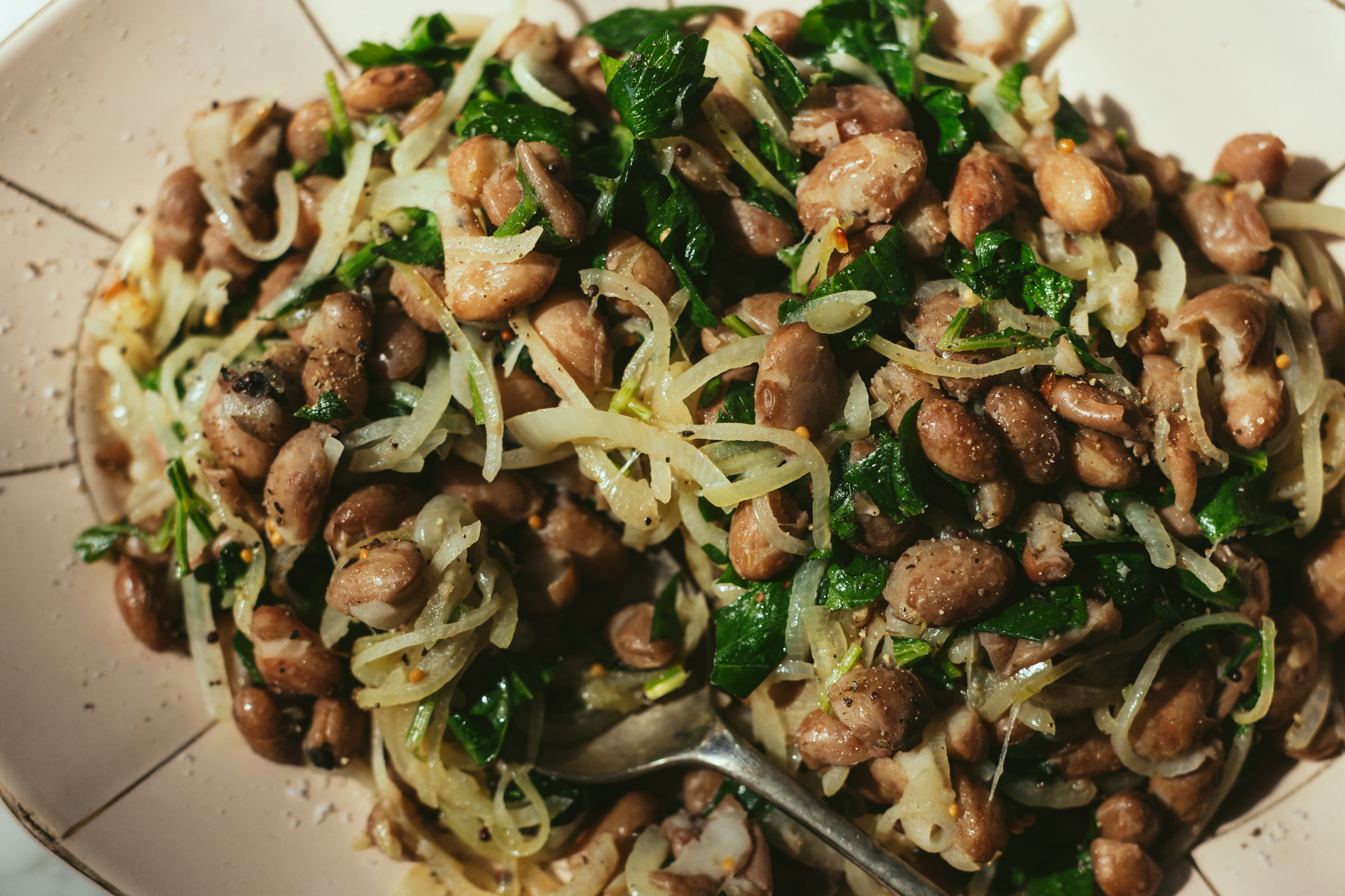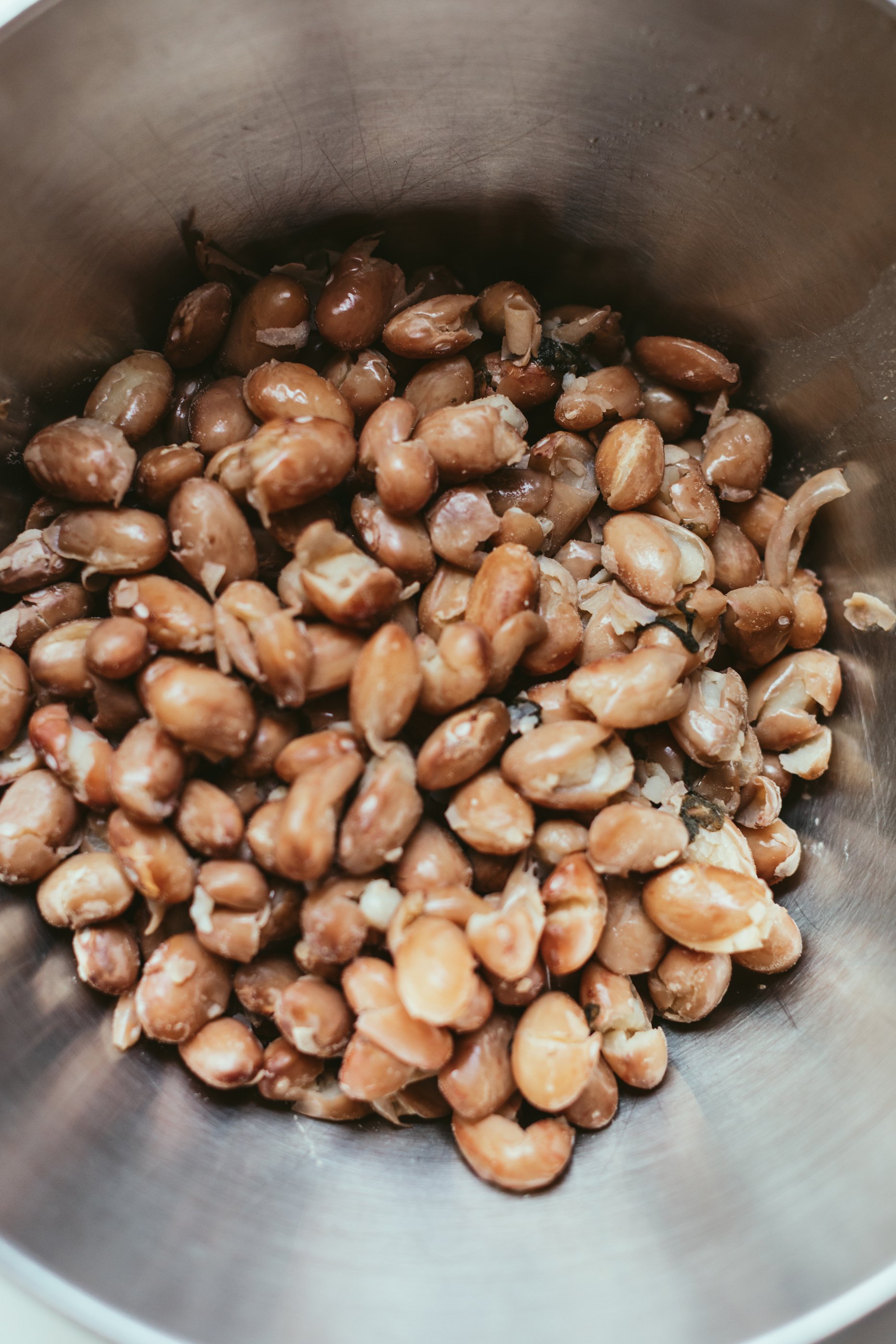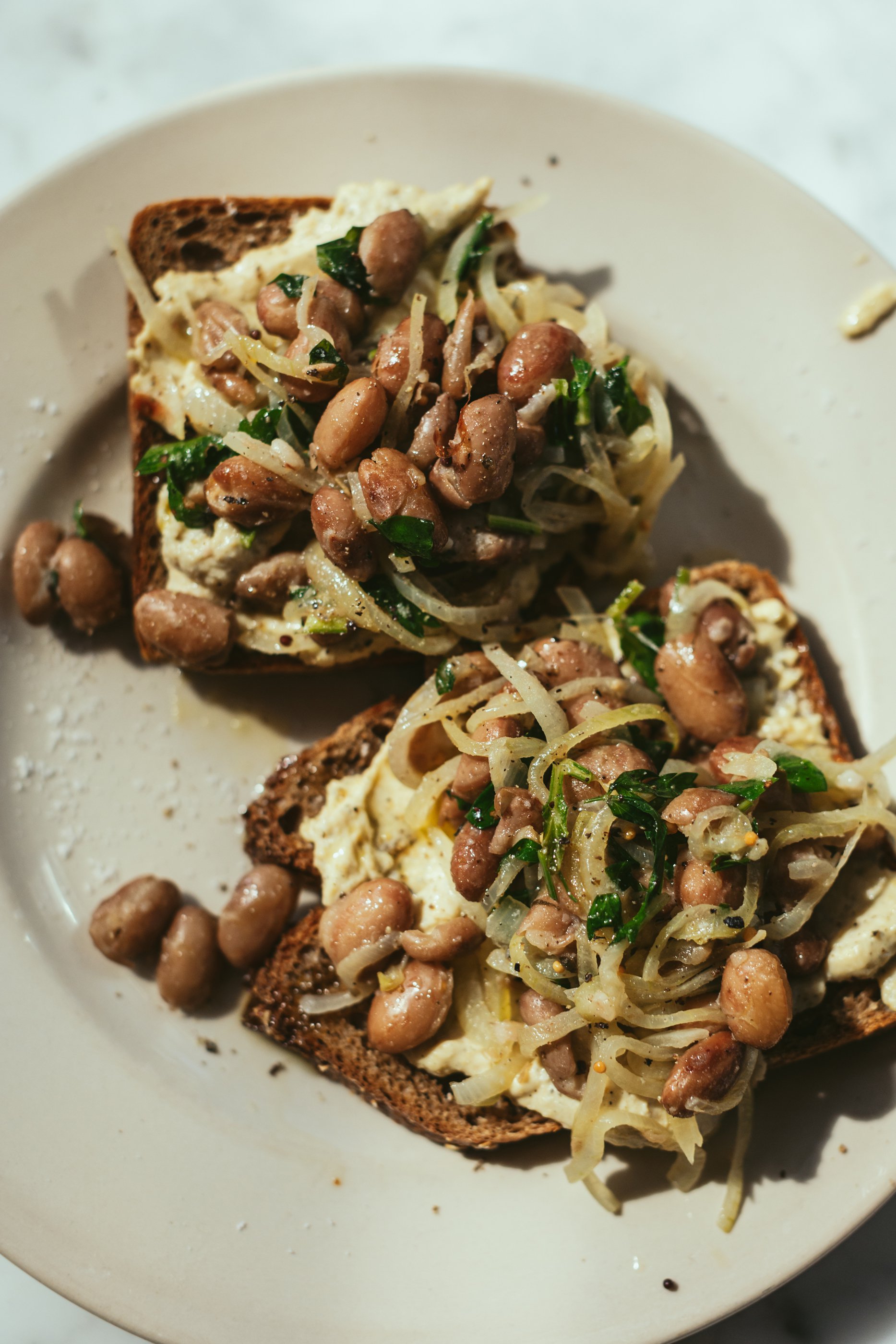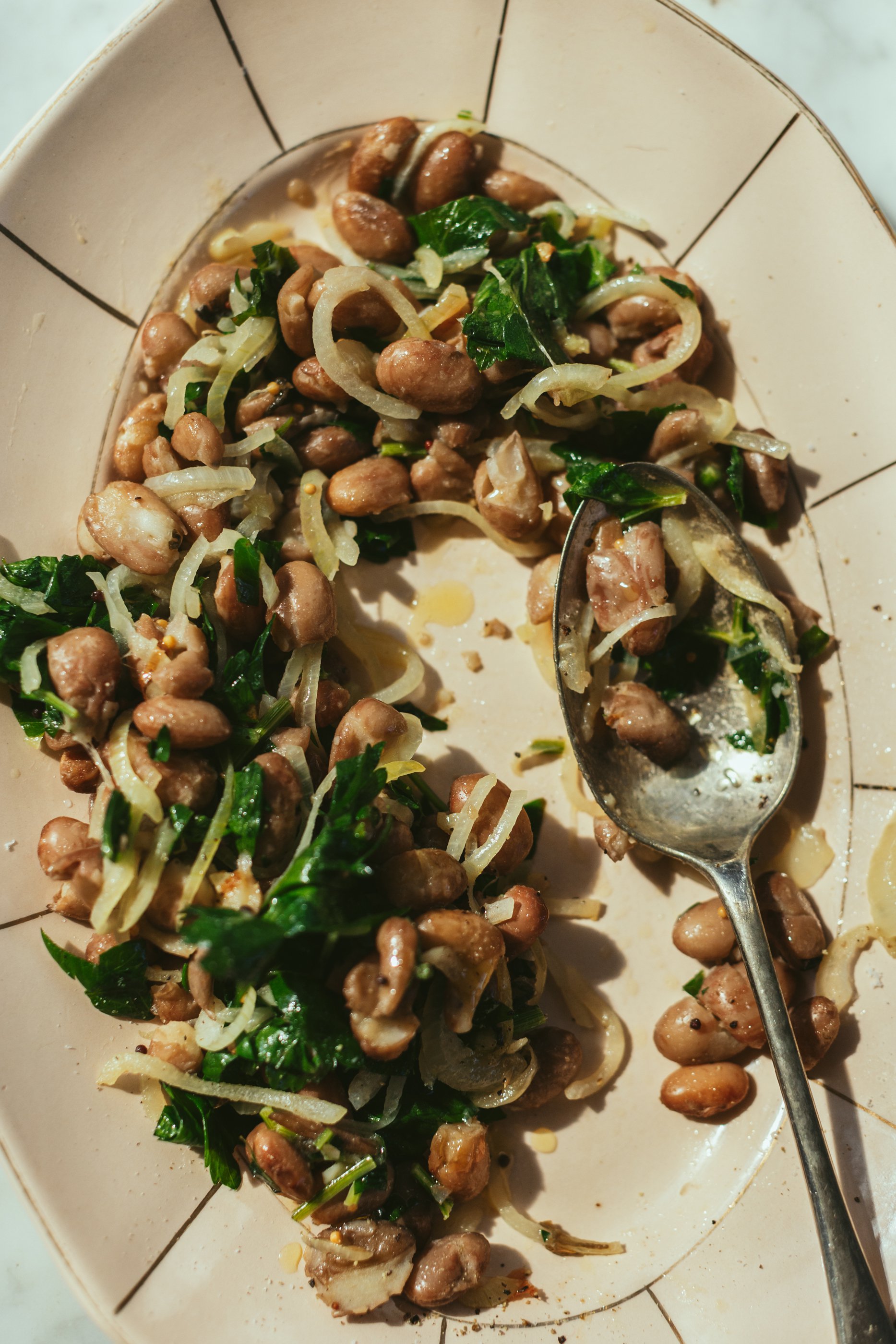Photography by Tracey Creed
Recipe by Amandine Paniagua and Tracey Creed
Words by Tracey Creed
Published September 25 2022
If starting with dried beans, strain them from their soaking water, and add the kombu. Cover with 3 inches of water and simmer until soft, then drain. Reserve the bean cooking liquid for another use, like cooking rice or making soup!
If using canned beans, you skip the previous step and just strain and rinse your beans. You would not be using the kombu but the beans will still be delicious.
Thinly slice the onions; warm the olive oil in a large saute pan over medium heat and cook the onions, occasionally stirring, until nicely caramelised.
Pull the leaves from your parsley stems and mince the stems.
Add beans and parsley stems to the onions and stir to combine.
Add spices, stir, and transfer to a serving plate. Squeeze some lime over everything and garnish with parsley.
These beans will keep up for up to 3 days refrigerated.
These beans spiked with kombu and onions are excellent served alongside big green salads as a rich protein base or tucked into fresh tortillas with slaw, salsa and hot sauce. Over the years, I have developed a passion for beans. I have been following a vegan diet for twenty-five years now which at the time was the result of seeing my mother go through breast cancer. I didn't intend to become a vegan. I just desperately wanted to avoid disease. One thing led to another, and as I entered university, my interest pivoted toward human health sciences, pathology and nutrition, which led to six years of research and study. A vegan diet made so much sense to me and seemed so freeing at the same time. It still does.
While I did graduate with a nutrition degree, I never practised. I’ve always been deeply connected to the idea of the betterment of health and well-being; the idea that we can each choose to live in pursuit of radical health is profoundly exciting. Previously I had severe eczema, which isn’t just a surface issue. Like all issues, it’s deeper. For example, acne also—both are tied to my stress.
I learned that if the eyes are the window to the soul, the skin is a window to the digestive system and understanding functional medicine changed my diet and my approach to health and longevity. And my skin. Returning to the word functionality, my approach to skincare is rooted in the body's functionality—this is how we obtain and maintain strong, healthy skin.
You need to ask yourself what the skin is already apt at doing and what does it need to do those things? Sulfur is vital to achieving healthy skin. And if you’re lacking, you first need the appropriate tests to understand your internal environment. Then you can compensate and make the necessary environmental, dietary or lifestyle adjustments.
Sulfur is THE beauty mineral that aids the detoxification process by helping the body produce glutathione— one of the most potent antioxidants. Collagen production depends on getting enough sulfur in your diet. Sulfur-containing amino acids methionine and cysteine are the two significant sources you’ll find sulfur. Ideally, you’ll want to be eating at least 3 cups of sulfur-rich vegetables daily, which in addition to sulfur, also contain an abundance of antioxidants.
– Methionine in black beans, Brazil nuts, kidney beans, pumpkin seeds, quinoa, sesame seeds, soybeans, teff, white beans and wild rice.
– Cysteine in chickpeas, couscous, lentils, oats, soybeans and walnuts.
— Other foods containing sulfur such as allium vegetables (garlic, leeks, chives, onions, et cetera) and cruciferous vegetables (broccoli, Brussels sprouts, cauliflower, cabbage, kale, et cetera).
As an aside, for those invested in eating more plants, I would suggest finding a good Doctor first and foremost. I jumped head first into veganism without consultation and consequently, years later, became extremely low on energy. My B12 levels were close to depleted. It was then that I consulted with a Doctor who helped show me how to read blood test results and explained to me why B12 is vital. You don't need to commit to a vegan diet right away to start seeing and feeling the benefits, but the more you learn and learn to listen to your body, the more you will know what foods make you feel good.



